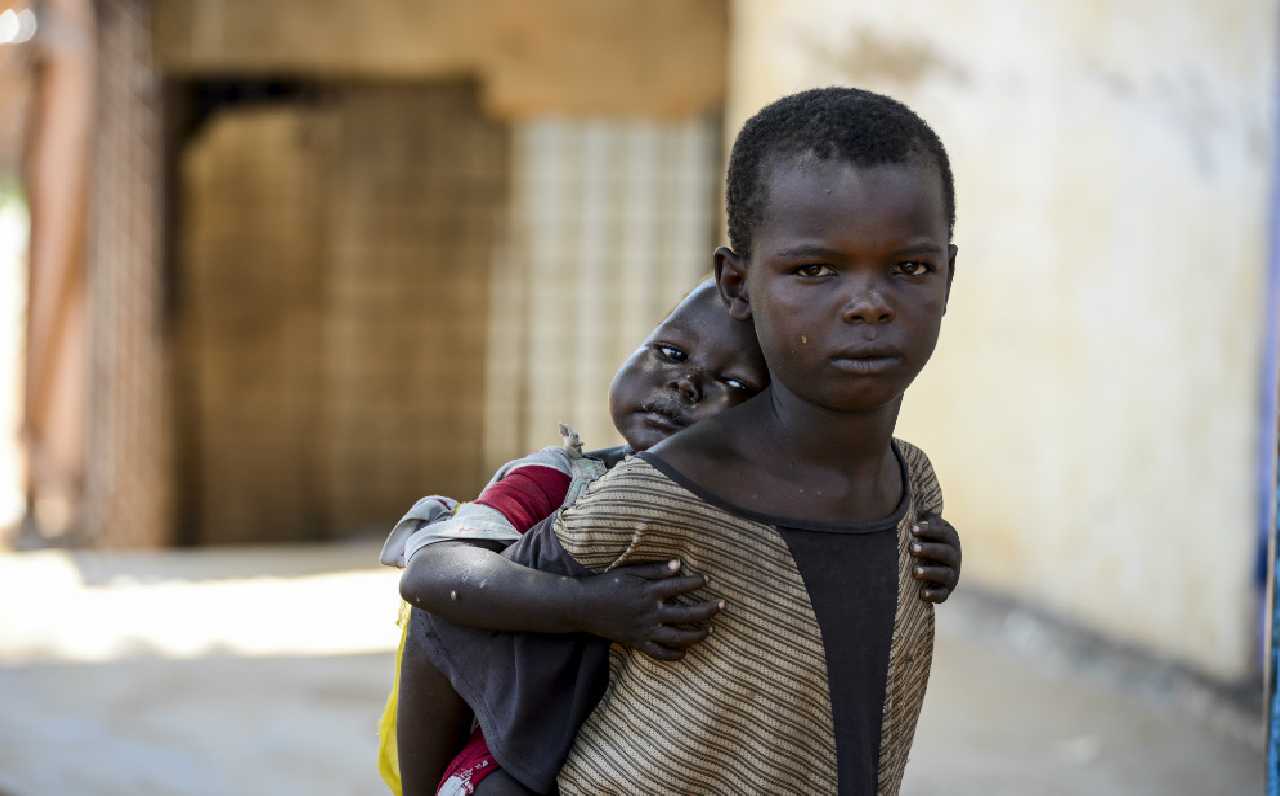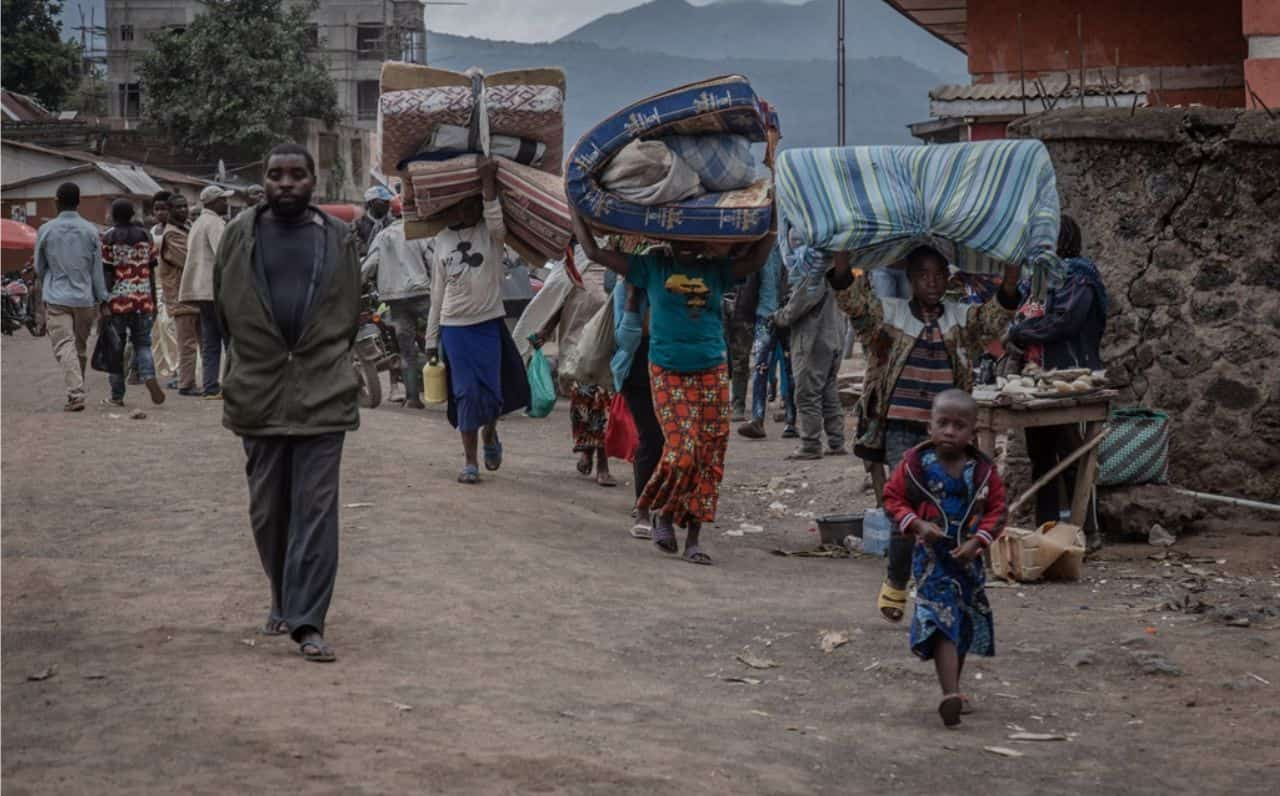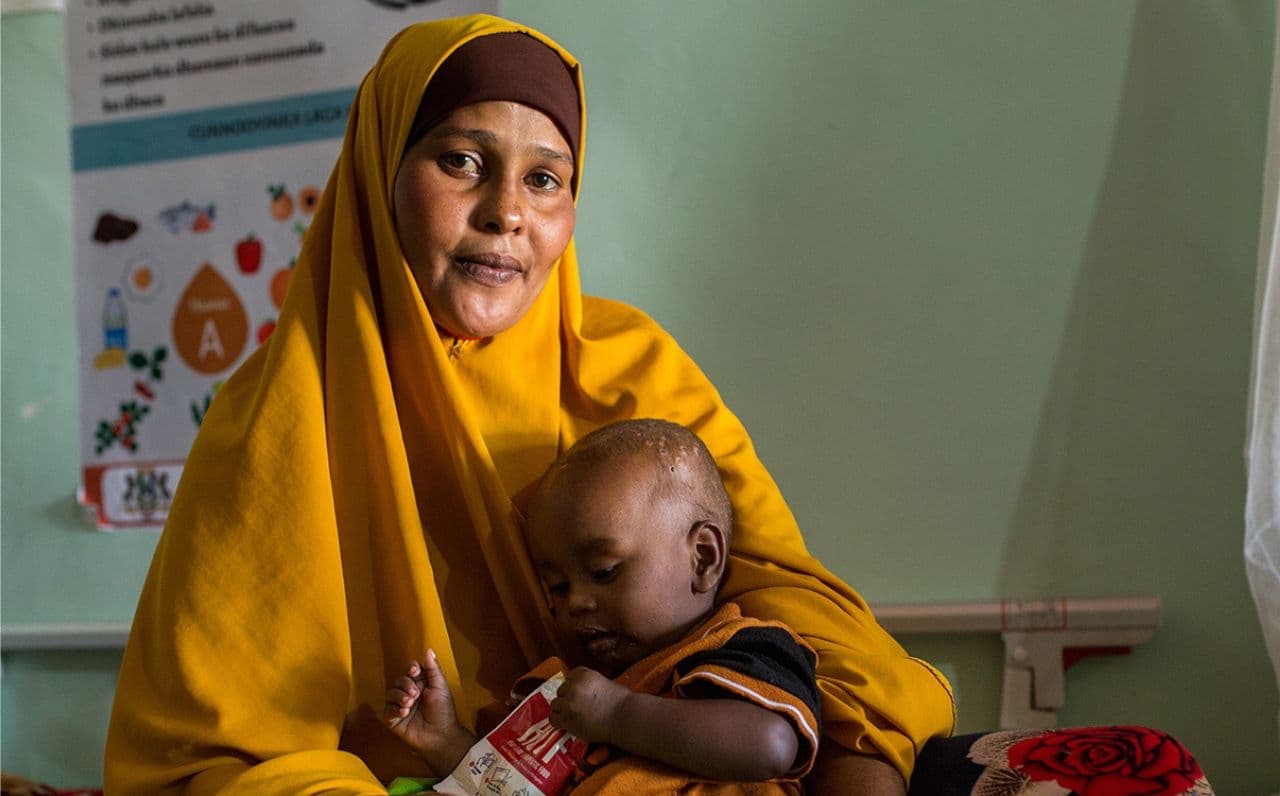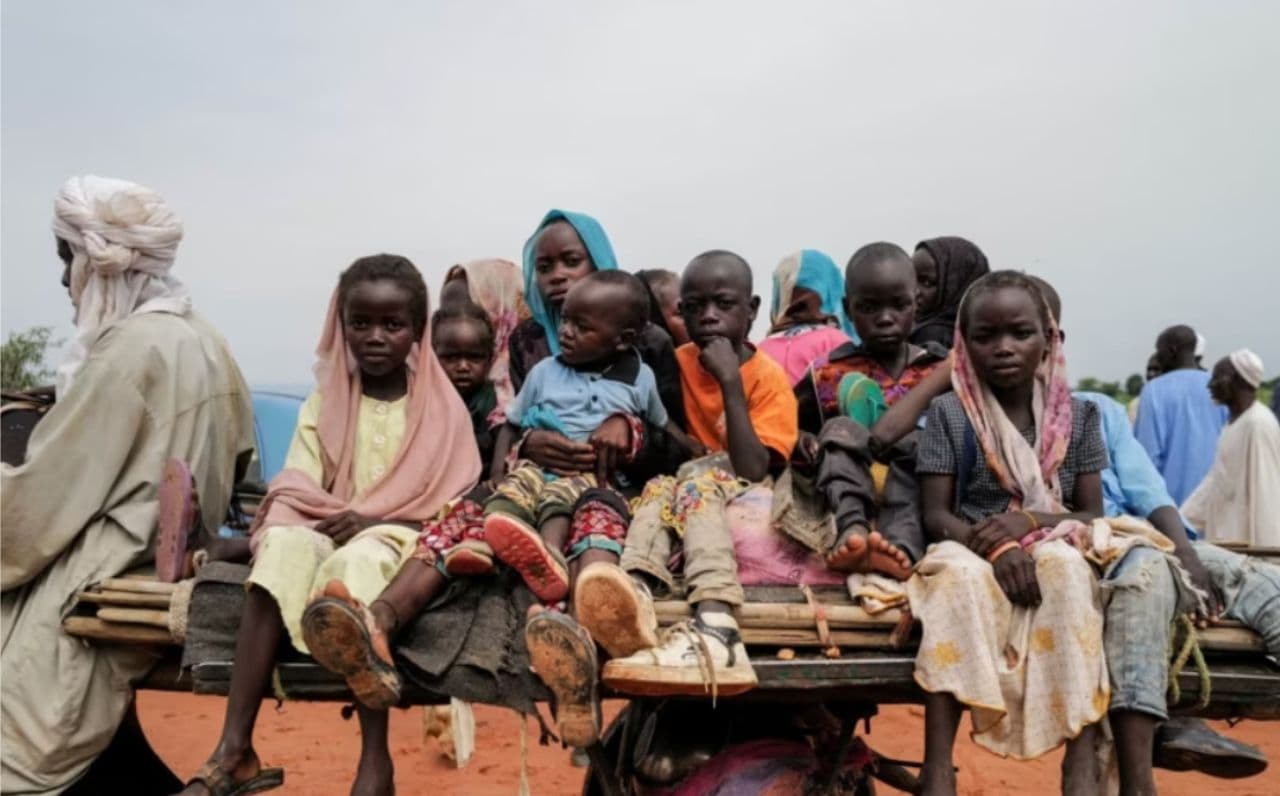Difficult life in Sudan

Children forced to work, skip meals as situation worsens.
Monstaser, 14, goes to the market every afternoon to sell sweets to support his family, sometimes staying out until 10pm. Whatever he earns – usually the equivalent of US $2-3 – he gives to his mother Ihasan to contribute towards feeding their family.
“Every day after school, I go to the market to sell sweets. Sometimes I feel very tired. I come home at 10pm after work,” said Montaser. “My mother has to wake me up in the morning. I do not have time for anything else, but work and school. I never play.”
Montaser’s situation is just one example of the many hardships facing children in Sudan, where economic and political tensions have seen a rise in hunger levels, and an extra 50,000 children suffering from severe acute malnutrition in 2021 compared to 2020.
Montaser and his family – mother Ihasan, brother Moayad (12), sisters Arig (6) and Ibtihaj (25), and Ibtihaj’s three children – live in Khartoum, Sudan, where they move from another state 23 years ago in search of a better quality of life and access to healthcare.
But their lives have become increasingly difficult since Montaser’s father died seven years ago, and since the onset of a financial crisis that saw inflation in the country rise to one of the highest levels in the world. about 14.3 million people will be in need of humanitarian assistance in 2022 – the highest it’s been in a decade, and a 800,000-person increase compared to 2021. That figure translates to 30 per cent of the population.
Ihasan, 42, said: “After my husband died, I worked in different jobs: I sold tea, sometimes I worked as a cleaner in restaurants or companies. I was still receiving medical treatment and I had to go to the hospital on many days. The companies released me, because I missed too many days at work.’
Ihasan and her daughter Ibtihaj try to get whatever casual work they can, and nothing is more important than putting food on the table so that her children can survive. Often, she can only afford to do this once a day. Goods such as coffee and tea are now a distant luxury and she cannot afford to spend money on other essentials, like repairs on the house, clothes or anything her children might need for school.
Ihasan said: ‘The most important thing for me is to provide food for my children and that they can continue with their education. Often, we only have one meal per day, either lunch or dinner, depending on how the day went. We are barely getting by.”
Source & credit: Save the children
Africa

2021 Dec 23
Middle east

2024 Dec 10
Africa

2024 May 10
Threats against Christians in Australia increase
International, Americas

2024 Apr 16
Increasing Arrests and Faceless Victims Revealed in Latest Findings.
Middle east

2024 Feb 23
SimilarNews
 Congo-Rwanda Border Tensions Surge: Conflict Fears Mount
Congo-Rwanda Border Tensions Surge: Conflict Fears Mount Escalating Hostilities Prompt International Concern
Africa

2024 Feb 20



